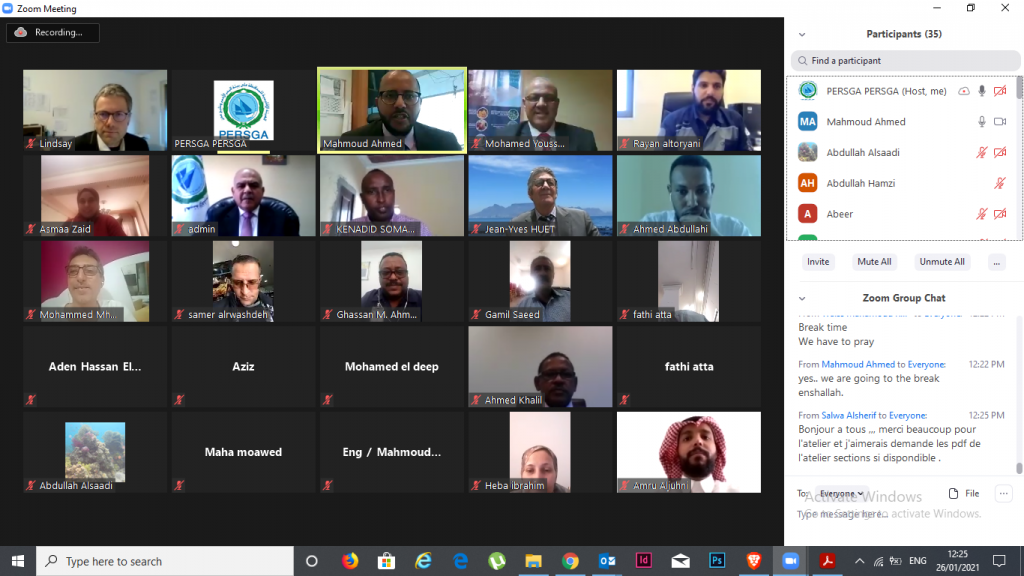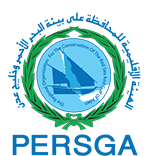This workshop was organized remotely by the Regional Organization for the Conservation of the Environment of the Red Sea and Gulf of Aden, PERSGA. The activity took place as a teleconference, hosted by PERSGA. About 48 participants from all seven member countries of PERSGA, attended and participated actively.
This regional training workshop comes within the framework of PERSGA’s efforts to build the capacities of its member states in areas related to oil pollution incidents and their adverse impacts on both the marine environment and human health.
The workshop started with an opening speech by Dr. Ahmed Khalil, on Behalf of HE Prof. Ziad H. Abu Ghararah−Secretary General of PERSGA highlighting the importance of a regional approach to the use of dispersants for the response to marine oil Spills which is the focus of the workshop.
The primary objective of the workshop was to enhance the awareness, capacity and capability of the members of PERSGA in contingency planning and the response to Oil and hazardous and noxious substances (HNS) incidents with a view to enable the participants to gain knowledge on dispersants and their application, with a view to enhancing PERSGA member States capability to prepare and/or update their national policies for dispersants use.
It also aimed to raise participants’ awareness of the unique issues, considerations and challenges that must be taken into consideration in preparing for and responding to pollution incidents involving oil and HNS.
The workshop was delivered by three international facilitators with significant experience in marine oil spill preparedness and response. The workshop program contained a series of technical presentations on the various aspects of the use of dispersants in marine oil spill response, combined with a number of case studies.
During this workshop, participants were able to acquire knowledge on the advantages of dispersants, their possible effects on the environment, and therefore the need to define a national policy defining a clear procedure for their approval and the use of the concept of the Net Environmental Benefit Analysis to weigh out the environmental tradeoffs. It is an approach to identify some possible environmental and socio-economic impacts (of the spill and of response options) and to compare the benefits of each response option to assist in choosing the most suited one. The participants learned about ways to apply dispersants and the need to manage the decision making, mobilization, and deployment of associated resources through a clearly identified National organization taking charge of Command & Control of the Response.
The 3-days virtual training workshop provided an excellent and effective platform for participants to gain knowledge and experience on the use of dispersants in the response to oil spill incidents, and the need to analyze the potential adverse effects of the technique on the environment of PERSGA member countries. A recommendation for the development of Regional guidelines on the use of dispersants in the PERSGA region received support from the participants.
No formal recommendations have been formulated. however, from many of the participant’s interventions, it is clear that the subject of dispersant use is of great importance to PERSGA countries and that such capacity-building activities contribute greatly to enhancing their knowledge.
Moreover, the training highlighted the need for setting up and upgrading national policies regarding the use of dispersants with a Regional approach to their review or development.































